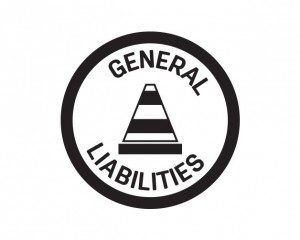How do you know if the workplace liabilities you experience for faith at work are “good liabilities?”
There seems to be a good deal of energy around the idea that living one’s faith at work is at times a liability (See the following posts: http://www.patheos.com/blogs/marketplacefaith/2015/09/living-your-faith-and-work-asset-or-liability-part-1/ and http://www.patheos.com/blogs/marketplacefaith/2015/09/living-your-faith-at-work-assett-or-liability-part-2/)
These posts led to comments in several online communities where people shared stories of harassment or even termination for expressions of faith on the job. There are a string of accounts of people being fired or forced into resignation usually over issues related to same sex marriage (opposition to SSM or support for traditional marriage). I will not be passing on any such stories on my blog.
Avoiding The Rush to Judgement
Perhaps I’m just a chronically-cynical Gen-xer, but I’m always wary of such cases. While it is entirely possible that people are being penalized for a traditionally biblical view of marriage, it’s also possible their stance on the issue is being used to divert attention away from a bad attitude or poor performance.
I sat on the employer’s side of the desk for 20 years. Sometimes you have to let people go for complex reasons. I know the difficulties of 1) making such decisions and 2) discerning what can be disclosed publicly. As a pastor, people have come to me with their problems, confessing their missteps: 75% of the time they never initially let on to the depths of their errors. So it seems unwise to comment on stories that get passed around various media outlets. How will we ever know the truth? What I do know is that there is a rich history of biblical teaching and examples that can point us to a positive way forward.
Principles and Examples
In this post, I consider some teaching from Peter. In the next post, we look at Daniel’s example. Both Peter and Daniel lived as spiritual refugees in a religiously hostile culture. Through them we gain a vision for how to know if the cost we are incurring for our faith is a good one.
Peter was writing to Christ-followers who were at risk: they could lose their businesses, homes, freedom, even their lives for owning their faith. But disaster wasn’t a forgone conclusion. Even with these dangers around them, he gave them the following counsel regarding the way they conducted their lives:
Now, who will want to harm you if you are eager to do good? But even if you suffer for doing what is right, God will reward you for it. So don’t worry or be afraid of their threats. Instead, you must worship Christ as Lord of your life. And if someone asks about your hope as a believer, always be ready to explain it. But do this in a gentle and respectful way. Keep your conscience clear. Then if people speak against you, they will be ashamed when they see what a good life you live because you belong to Christ. Remember, it is better to suffer for doing good, if that is what God wants, than to suffer for doing wrong! (1 Peter 3:13-17)
Good Liabilities and Bad Liabilities
Peter is reminding his readers that there are two reasons you might suffer: 1) doing good and 2) doing wrong. If they are lazy, dishonest, or law breaking, they are suffering for doing wrong. But if they are gentle, respectful, un-abrasive yet firm, and above accusation, then they suffer for doing good.
When doing the right thing—being honest, sticking up for the oppressed, or gently and respectfully declining a task or assignment that violates one’s faith—results in a being passed up for a promotion, ostracized or terminated, then we have a good liability. We have clean conscience. But when we experience these consequences for being less than great at our work, we deserve it! We do better to leave Christ out of the situation.
Keep it Personal
We cannot know all the details about why others have difficulty in their workplaces, but we can examine our own lives. We can ask: “Would challenges that come to me for owning my faith at work be good liabilities or bad?
___________
Link for picture: http://www.hollardbrokers.co.za/za/news/entry/general-liabilities-cover-get-to-know-your-client-and-become-a-risk-profess













